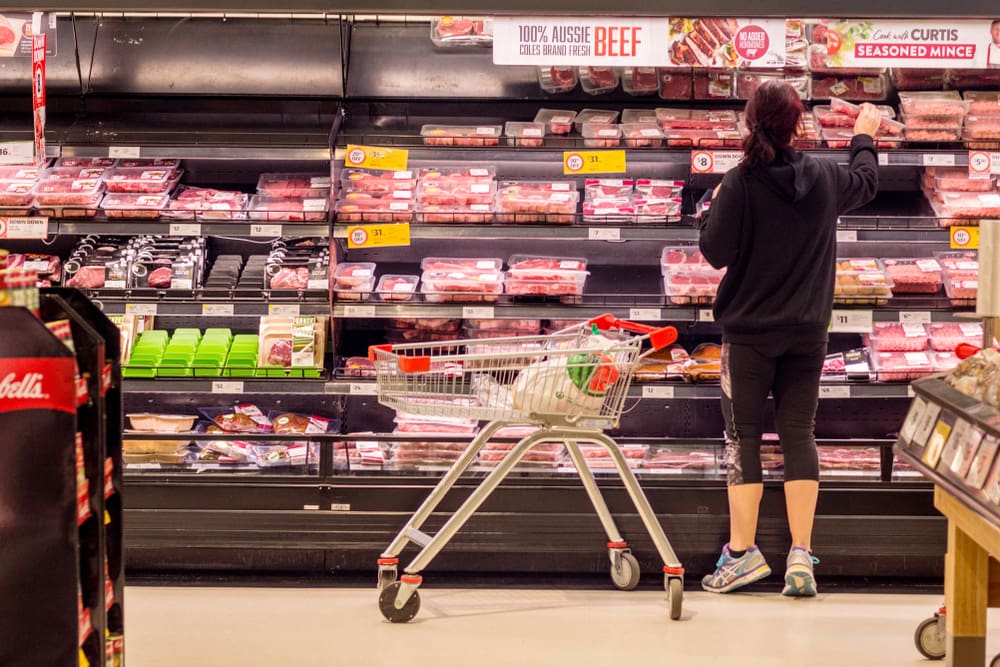AS THE microscope is put on Australia’s supermarket supply chains, the grassfed cattle industry’s peak representative group has called for more price transparency to flow back to producers.
Woolworths and Coles have been criticised in recent months for their role in the high inflation rates being felt across the economy, resulting in at least four Government inquires. ABC’s flagship investigative program Four Corners raised fresh price gauging allegations earlier this week.
For the meat industry, the issue was raised last year when prices livestock prices plummeted and meat prices stayed relatively stable. Analysis from Episode3 and Beef Central earlier this month found the producer’s share of the retail spend reached its lowest point in more than 20 years last years – before livestock prices recovered this year.
Since then, a senate inquiry investigating supermarket prices has made its submissions public, which has seen criticism of the supermarkets walking away from programs like the in-store butchers and some producers with supermarket contracts praising the relationships they had built over time.
Cattle Australia was among those to make submissions, acknowledging the frustration about supermarket pricing.
“It has long been a frustration for agricultural producers that our sector attains only a small portion of the end retail price of food products and there is little transparency in price setting at the retail level,” CEO Chris Parker said in the submission.
“It has also been a source of frustration for the public as is evident by the numerous parliamentary and public inquiries into price transparency and price setting by the major supermarkets.”
Speaking to Beef Central, Dr Parker said the push for transparency was about helping producers make more informed decisions about their operations and how they market their cattle.
“I hear a lot of positive comments about the relationships that people have with Coles and Woolworths over time, sometimes up to 30 years,” he said.
“The relationship the grassfed beef industry has with the supermarkets is different to the challenges of the horticulture industry.
“I don’t think low prices at the supermarket are necessarily what we want. But what we do want to see is fair and equitable prices with transparency – so we can get some sense of what costs there are in the supply chain so producers can make some assessment of what a fair price is.”
Avoiding unintended consequences
In its submission to the inquiry, CA referred to the last time the Australian Competition and Consumer Commission investigated supermarkets in 2020. The ACCC report highlighted a need for more transparency, but also a consideration of the unintended consequences transparency might bring.
“As the beef industry exports around 75pc of its product to international markets, caution must be exercised that domestic price signalling doesn’t impact international client expectations,” the report said.
Dr Parker told Beef Central more market transparency was a balancing act.
“There are people who want full transparency and others who more comfortable with less transparency. Particularly if they are fully exposed to the international marketplace,” he said.
“We must not forget that we export 70 odd percent of what we produce.
“What we really want is for producers to be able to compare evenly between the different ways of selling.”
Focus on carcase measurement
Part of CA’s call for greater transparency was a look into the amount information producers are getting from their carcase measurement processes.
“Presently there is a lack of clear market indicators for beef producers that are concise and consolidated.
“The implementation of technology to enable objective carcass measurement (OCM) and value-based marketing, founded on yield and eating quality, would provide a greater level of confidence that prices reflect the true value of beef products.”
- Woolworths is set to announce its half yearly results tomorrow

